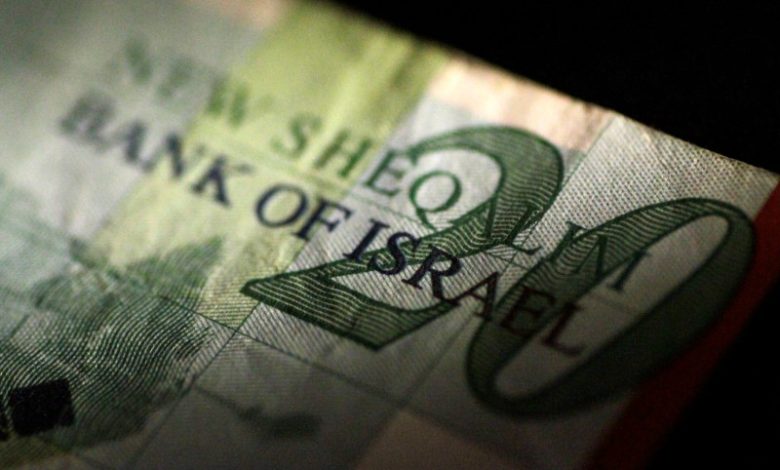
Israel’s War-Wary Markets Begin to Attract Investors Again By Reuters
By Steven Scheer and Marc Jones
JERUSALEM – A month after the October 7th attack by Hamas gunmen that resulted in the deaths of 1,400 Israelis, investors are cautiously re-entering the country’s financial markets, tentatively accepting the situation as Israel faces its most serious security crisis in decades.
A recent decline in the dollar has contributed to Israel’s financial recovery, as the shekel made a significant comeback on Tuesday, recovering the entirety of the 5% loss it suffered in the aftermath of last month’s events.
Israel’s stock and bond markets are also recovering, although both remain sensitive to risks, as indicated by credit default swaps. "The fact that the fighting is confined to Gaza (for now) allows local investors to refocus on the economic fundamentals," observed Yaniv Pagot, head of trading at the Tel Aviv Stock Exchange.
In response to the attacks, which involved the kidnapping of over 240 Israelis, Israel has conducted extensive airstrikes on the Hamas-controlled Gaza Strip, followed by a ground offensive. Analysts initially feared that the conflict might escalate into a broader regional war involving Iran-backed Hezbollah in Lebanon, but so far, Hezbollah has refrained from direct involvement.
The central bank of Israel has also taken action by implementing various support measures while avoiding interest rate cuts. It acknowledges that the economy will experience a slowdown but asserts that it was in a stable condition before the conflict and is likely to recover as it has in previous confrontations. "We have a history of bouncing back from difficult situations and returning quickly to prosperity. I have no doubt that we will do so again," stated the bank’s Governor Amir Yaron.
When the war began, markets were taken aback. The shekel, which had already declined by 10% in 2023 due in part to a contentious government plan to reform the judiciary, plunged an additional 5%, reaching an 11-year low. However, sentiment shifted last week when Hezbollah indicated it would likely remain passive, and the U.S. Federal Reserve suggested that additional interest rate hikes may not be necessary, leading to a significant depreciation of the dollar.
"Market sentiment has been stabilizing, and broadly, this is linked to the dollar’s performance," commented Geoff Yu, a senior FX and macro strategist, regarding the dollar’s decline.
Moreover, Israel’s central bank has been perceived as offering a credible response to the escalating situation, which has alleviated concerns about a major drop in the currency that could exacerbate financial instability and inflation.
MONEY RETURNS
Just two days into the conflict, the central bank announced plans to sell up to $30 billion in foreign currency to support the shekel and provide $15 billion in market liquidity through swap transactions. It has reportedly used less than one-third—$8.2 billion—of that allocation during October. The bank still holds over $190 billion in foreign exchange reserves and has conducted $400 million in dollar-shekel swaps.
On Tuesday, the shekel appreciated by another 0.7% against the dollar, returning to a pre-war level of 3.86 to the dollar. The government’s borrowing cost, reflected in the benchmark yield, has also decreased to 4.22%, nearly back to its level before the attacks and significantly lower than the peak of 4.67% post-attack.
The dollar-denominated index for Israeli shares has recovered over half of its initial losses, now down 6.3% compared to a 15% decline in late October. "The Bank of Israel has acted very decisively," noted Gil Moshe, head of markets for the Israeli subsidiary of a U.S. bank. "When market participants see that liquidity is available and that the Bank of Israel is ready to intervene as needed, confidence increases."
He pointed out that local bid-offer spreads have tightened after initially widening due to market concerns. Pagot reported that Israeli institutional investors, who had previously moved funds abroad due to worries over judicial reforms, are now increasing their investments in local stocks and bonds.
"Institutions are bringing money back home," Pagot said, adding that they view the weakened shekel as a favorable investment opportunity.
Looking ahead to next year, strategist Shmuel Katzavian from Discount Bank anticipates that the shekel will continue to strengthen, having been on a downward trend for around two years due to generally weakened sentiment.
 GOOGL
GOOGL  META
META 


